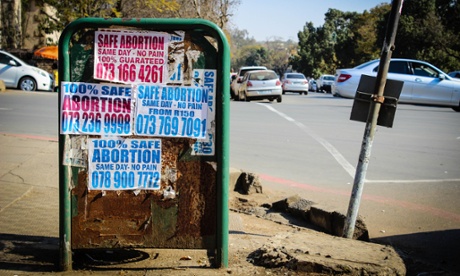Human Rights of Women
Source: The Guardian
Nairobi's high court convicted Jackson Namunya Tali of helping a Kenyan woman to obtain an abortion illegally, which led to her death. IQ4News reports
Nurse Jackson Namunya Tali was not the first person Christine Atieno approached when she sought help to end an unwanted pregnancy in Kenya.
Tali says that Atieno asked for assistance after undergoing a botched abortion, in a country where the procedure is illegal.
Last week, the high court in Nairobi sentenced 41-year-old Tali to death for murder, after the death of both mother and foetus.
In the ruling, Judge Nicholas Ombija said the nurse, who had been working at Kihara Sub District Hospital and operating a private clinic in Kiambu, had been found guilty of murdering Atieno.
"He has killed two people, a foetus and her mother, and the only sentence available in law is the maximum death penalty, which I have handed to him," said the judge.
The court heard that Atieno died in Tali's vehicle as he drove her from a clinic to another hospital for advanced treatment, the BBC reported.
The ruling has reignited the debate over abortion, which is only legal in Kenya if the pregnancy is deemed by a medical professional to be endangering the mother's health.
The law had previously stated that abortion could only be performed if a woman's life was endangered, and whereas three doctors were previously needed to approve the procedure, rules have been relaxed so that only one doctor's consent is needed.
However, in most communities, abortion is regarded as a taboo and individuals involved in the act can be branded murderers. South Africa, Tunisia and Cape Verde are the only African countries to allow abortion without restriction on the reasons for it.
In most communities it is regarded as a taboo and individuals involved in the act can be branded murderers
Figures from Kenya's health ministry show that abortion contributes to 2,400 maternal deaths annually, with 465,000 abortions carried out in conditions deemed unsafe in 2013. Access to contraception is still limited. In 2008-2009, more than four in 10 pregnancies were unintended, according to a study by the Guttmacher Institute.
 Adverts for procedures posted on a street in South Africa. Abortion is illegal in Kenya except when a mother's health is in danger.
Adverts for procedures posted on a street in South Africa. Abortion is illegal in Kenya except when a mother's health is in danger.
Photograph: Miran Hojnik/flickr
According to Google Zeitgeist 2012 report, advice on how to procure an abortion was one of the most searched-for topics among Kenyans.
Religious leaders in the socially conservative country reject calls by human rights activists and reproductive health care professionals to allow wider access to abortion to be entrenched in the Kenyan constitution. They have been known to take to the streets to vent their anger at the suggestions.
According to the Kenyan constitution: "Abortion is not permitted unless, in the opinion of a trained health professional, there is need for emergency treatment, or the life or health of the mother is in danger, or if permitted by any other written law."
It is this clause that has been at the centre of controversy between proponents and opponents of abortion, with the former arguing that it could lead to more deaths, particularly among teenagers. The law had previously stated that abortion would only be allowed if the mother's life was in danger.
Many opponents believe that life begins at conception and by permitting hospitals to carry out abortion, the country would be handing health professionals the ticket to commit murder.
Thadeous Mworia, a pastor with the Redeemed Gospel Church of Kenya, told IQ4News that abortion is a sin. "There should be no debate about it at all because it is an abomination," he said.
However, many others feel the law should made more lenient.
"We are witnessing deaths of many young girls because they are seeking the services of quacks," said Anne Wamoyo, a student at the University of Nairobi. "Society does not want to associate with them."
